Retro Childhood Review: A Serendipity Book
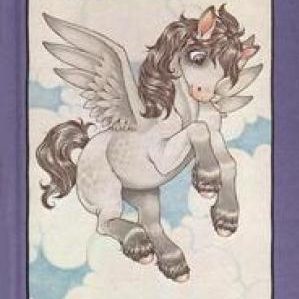
So on some Autumn morning Look into the frosty pool. You’ll see in your reflection That you’re a Flutterby too! This is a bit of an odd review, but as I was looking through my bookshelves I happened upon one of the most precious books in my collection, Flutterby, written by Stephen Cosgrove and illustrated by Robin James. It is so worn that I have no idea what color it started out, the pages are torn and marked with scribbles, and the title page is adorned with what must be one of my earliest signatures (and also the name of my best friend in kindergarten). Flutterby is such a delightful story that you can’t help but be charmed by the miniature Pegasus that desperately wants to figure out who she is. I turn to it whenever a child comes to visit, because the message is simple, but powerful, and accompanied by colorful illustrations. But Flutterby is only one such story in the long line of Serendipity Books, a series that began in 1974 when Stephen Cosgrove wanted something beautiful and affordable to read to his 3-year-old daughter.
Retro Childhood Review: The Egypt Game
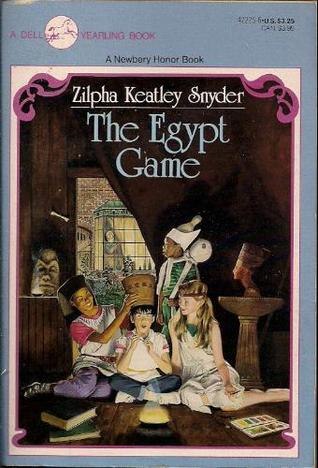
But, actually, that was the way with all of the Egypt Game. Nobody ever planned it ahead, at least, not very far. Ideas began and grew and afterwards it was hard to remember just how. That was one of the mysterious and fascinating things about it. Not every single book that I read as a child was a science fiction or fantasy novel, just MOST of them. I have a feeling that the cover of Zilpha Keatley Snyder’s Newbery Honor book The Egypt Game must have tricked me into believing it was a fantasy. Surely, with a name like that, it must be a portal fantasy full of mummies, pharaohs, and gods (a childhood fancy that is problematic unto itself). My impression wasn’t entirely incorrect. But it would be more accurate to say that the portal in The Egypt Game is the vivid imaginations of the characters themselves, a magic just as powerful as anything in Narnia.
Retro Childhood Review: Fog Magic
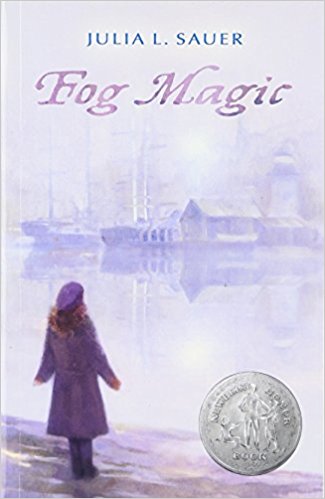
“It’s the things you were born to that give you satisfaction in this world, Greta. Leastwise, that’s what I think. And maybe the fog’s one of them. Not happiness, mind! Satisfaction isn’t always happiness by a long sight; then again, it isn’t sorrow either. But the rocks and the spruces and the fogs or your own land are things that nourish you. You can always have them, no matter what else you find or what else you lose.” Portal fantasy is a popular genre for middle children’s fiction, as evidenced by the fact that 3 out of my 4 Retro Childhood Reviews are about children finding their way to new worlds. In The Neverending Story, Bastian is escaping a grief-filled reality; in Firebrat, Molly is learning to appreciate her Grandmother; the reasons for traveling through portals are as varied as the stories themselves. But portal fantasy, at its core, allows a child reader to travel to new worlds along with the protagonists. Fog Magic, by Julia L. Sauer, a Newberry Honor Book, is an absolutely charming addition to the genre. Though this is not a book that captures my heart to the level of some of the others on my shelves, it is nonetheless one that I turn to from time to time, to escape to the simplicity of an earlier age.
Retro Childhood Review: Firebrat
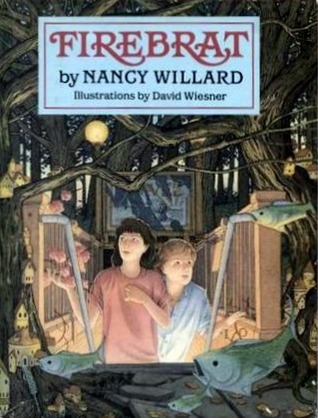
“It will only be for a month, Molly.” “Why me?” she wailed, forgetting her vow of silence. “Why not Betty? She’s older.” “Because I think you’ll do a better job than Betty. You’re the reader in this family. The storyteller… Your grandma’s getting awfully forgetful, Molly. Ever since Grandpa died, she’s been living in the past — she tells the same stories over and over. She needs someone who’ll talk to her and help her organize the shop. You know — keep her in touch with the present.” Silence. “Molly, you’re the one who doesn’t mind a little mess.” He waved his hand at her room. “You’re the lover of mysteries.” “What’s the big mystery about taking care of Grandma?” “Making people well is always a mystery,” said her father sadly. I will forever be indebted to a family that both placed an importance on reading and not only understood how much I loved science fiction and fantasy, but encouraged it with gifts. For my eleventh birthday, my aunt and uncle sent me Firebrat, by Nancy Willard, with illustrations by David Wiesner. I don’t know how they decided on this particular book, but the whimsical cover of fish flying through a forest, showing a young girl and a young boy, with the girl in the lead probably had something to do with it. And where I have read and discarded a hundred other fantastical children’s books, Firebrat has kept its place firmly ensconced on every bookshelf that I have ever owned.
Retro Childhood Review: The Last Unicorn
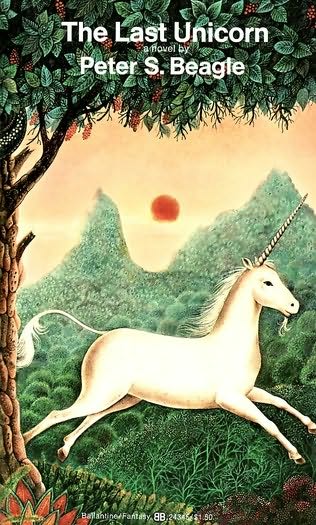
“I was born mortal, and I have been immortal for a long, foolish time, and one day I will be mortal again; so I know something that a unicorn cannot know. Whatever can die is beautiful — more beautiful than a unicorn, who lives forever, and who is the most beautiful creature in the world. Do you understand me?” “No,” she said. The magician smiled wearily. “You will. You’re in the story with the rest of us now, and you must go with it, whether you will or no.” — The Last Unicorn, by Peter S. Beagle I couldn’t have been more than 5 years old when The Last Unicorn came out on VHS and I watched it so often that my video store had to replace it within a year. My sister and I were absolutely enthralled by the delicate artistry of the unicorn, terrified of the Red Bull, and befuddled by some of the trippier moments (boob tree, anyone?). I always imagined the film to be more born of the imaginations of the production and animation studios, than of Peter S. Beagle’s writing. That is where I was woefully incorrect. This is the first time that I have ever read The Last Unicorn and, though the movie will always be my go-to, I am well and truly in love with this heartbreaking fairy tale.
Retro Childhood Review: The Neverending Story

Bastian Balthazar Bux’s passion was books. If you’ve never spent whole afternoons with burning ears and rumpled hair, forgetting the world around you over a book, forgetting cold and hunger — If you’ve never read secretly under the bedclothes with a flashlight, because your father or mother or some other well meaning person has switched off the lamp on the plausible ground that it was time to sleep because you had to get up so early — If you have never wept bitter tears because a wonderful story has come to an end and you must take your leave of the characters with whom you have shared so many adventures, whom you have loved and admired, for whom you have hoped and feared, and without whosecompany life seems empty and meaningless — If such things have not been part of your own experience, you probably won’t understand what Bastian did next. — The Neverending Story, by Michael Ende When I was 8 years old, my father handed me a book with a magical symbol on the cover, with text in red or green by turn, with a protagonist that for all intents and purposes was ME. I doubt I could ever adequately express what this book meant to me at that particular point in my life, nor in the subsequent years in which I read the book again and again, till the corners of the pages turned soft and the imprint on the cover became something you could only see in the right light at the right angle. I first met the characters of The Neverending Story when the movie was released in 1984. I was enraptured by every aspect of the film, but it was the book that truly captured me. The movie is a near perfect adaptation of the first half of the novel, but it misses some crucial elements that make this book a powerful masterpiece of Children’s fiction.

